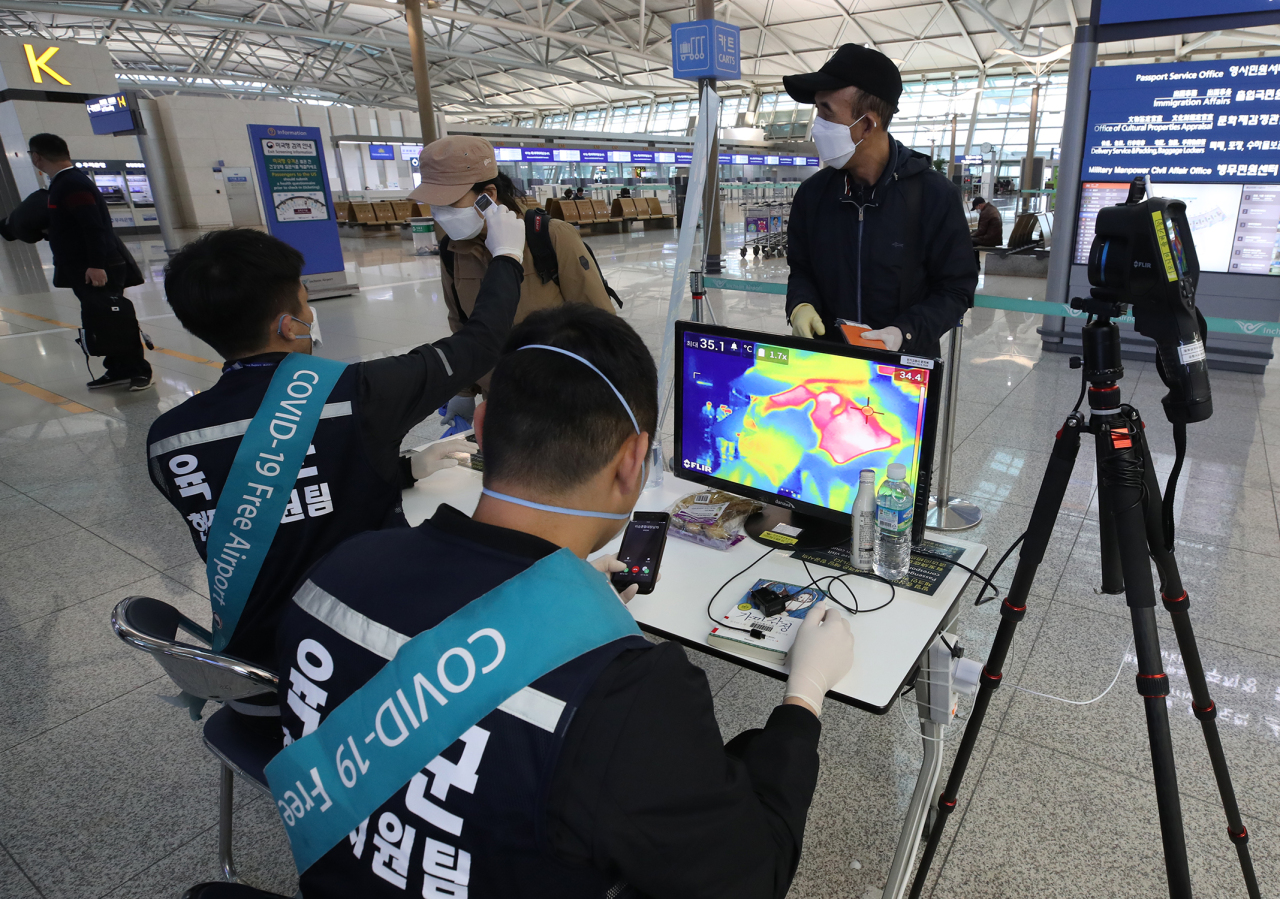Special screening procedures for all travelers to Korea
By Park Han-naPublished : March 17, 2020 - 15:59

With the domestic spread of the novel coronavirus slowing down, the South Korean government will begin screening all international arrivals this week to prevent it from coming in from abroad.
Special quarantine procedures will be applied to all travelers arriving here, not just foreign nationals but Koreans too, starting Thursday, according to the Korea Centers for Disease Control and Prevention on Tuesday.
Vice Health Minister Kim Gang-lip stressed that no one country can stop the virus single-handedly in a global pandemic situation and vigilance is necessary to prevent more infected people from entering the country.
“The number of arrivals testing positive for the virus or showing symptoms has been increasing recently,” he said at a press briefing.
All arrivals will be subject to the quarantine measures, which involve mandatory temperature checks and filling out health declarations at airports. They will be required to notify health authorities of their addresses here and phone numbers where they can be reached, and will also have to download a self-check app to report any changes in their health.
According to the KCDC, so far 55 people, including 47 Korean nationals, have been diagnosed with COVID-19 upon arrival from overseas.
The country has recently seen a slowdown in the number of new cases despite an alarming trend toward community transmission of the virus in large clusters such as the southeastern city of Daegu.
But now that COVID-19 is a global pandemic, there are added concerns about the inflow of the virus from Europe and other regions of the world.
The screening measures have been expanded to passengers arriving from all countries a day after the government decided to impose special quarantine procedures on arrivals from all European countries, in addition to those from China, Japan, Iran, Hong Kong and Macao.
On Tuesday, Korea reported new 84 coronavirus cases, the third consecutive day that the daily count was in the double digits, rather than the triple digits, since the outbreak began nearly a month ago.
Of the new cases, the metropolitan area including Seoul, Gyeonggi Province and Incheon reported a total of 44, whereas 37 cases were reported in Daegu, the epicenter of the outbreak here, and nearby North Gyeongsang Province.
The trend has emerged after sporadic infections occurred in enclosed spaces in the capital region, while tests have been completed in the hardest-hit areas of Daegu and North Gyeongsang Province.
“It is time for us to prevent sporadic mass infections in religious facilities, call centers and nursing homes centered on the metropolitan area from spreading to the nationwide level while preventing the inflow of the virus from abroad in response to the global pandemic situation,” Kim said.
The government operates a consultative group to swiftly respond to infection clusters in the metropolitan area and supports information sharing -- for example, in the form of joint studies among epidemiological investigation teams in cities and provinces.
“Given the high population density and vast foot traffic in the metropolitan area, response measures are even more critical,” he added.
Within the capital region, Gyeonggi Province has registered the highest number of confirmed cases, 31. Many are the result of mass transmission at the River of Grace Community Church. At least 47 people linked to the church have tested positive.
The church came under fire after the pastor’s wife of was found to have sprayed salt water into churchgoers’ mouths as a means of disinfection during Sunday services March 1 and 8. Both the pastor and his wife tested positive March 15.
Health authorities pointed to the incident as an example of misinformation putting people at risk. A direct link between her action and the dozens of infections has yet to be proven.
So far 81 people, mostly elderly patients with underlying illnesses, have died in Korea from the respiratory virus that emerged in China late last year, the KCDC said.
By Park Han-na (hnpark@heraldcorp.com)




















![[Today’s K-pop] BTS pop-up event to come to Seoul](http://res.heraldm.com/phpwas/restmb_idxmake.php?idx=642&simg=/content/image/2024/04/17/20240417050734_0.jpg&u=)